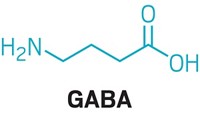Advertisement
Grab your lab coat. Let's get started
Welcome!
Welcome!
Create an account below to get 6 C&EN articles per month, receive newsletters and more - all free.
It seems this is your first time logging in online. Please enter the following information to continue.
As an ACS member you automatically get access to this site. All we need is few more details to create your reading experience.
Not you? Sign in with a different account.
Not you? Sign in with a different account.
ERROR 1
ERROR 1
ERROR 2
ERROR 2
ERROR 2
ERROR 2
ERROR 2
Password and Confirm password must match.
If you have an ACS member number, please enter it here so we can link this account to your membership. (optional)
ERROR 2
ACS values your privacy. By submitting your information, you are gaining access to C&EN and subscribing to our weekly newsletter. We use the information you provide to make your reading experience better, and we will never sell your data to third party members.
Biological Chemistry
Stress May Shorten Life by Pruning DNA
by Sophie L. Rovner
December 6, 2004
| A version of this story appeared in
Volume 82, Issue 49
If your mom claimed that you made her hair turn white, she may have been right. Even if her tresses never changed color, it's possible that child rearing and other long-term stresses shortened her life. New research reveals how such stresses might accelerate aging [Proc. Natl. Acad. Sci. USA, 101, 17312 (2004)].
One way to judge the age of an organism is to measure its telomeres, protective caps on the ends of chromosomes that shorten each time a cell divides. Once telomeres reach a certain length, the cell stops dividing. The new research shows that stress speeds up telomere shrinkage, according to Elissa S. Epel, an assistant adjunct professor of psychiatry at the University of California, San Francisco; Elizabeth H. Blackburn, a biology and physiology professor at UCSF who in 1985 discovered telomerase, a reverse transcriptase that can lengthen telomeres; and their colleagues.
The team compared mothers of children with a chronic illness to mothers of healthy children. In immune cells from both groups, the researchers found that "women with the highest levels of perceived stress have telomeres shorter on average by the equivalent of at least one decade of additional aging compared to low-stress women." The cells of the stressed women also showed less telomerase activity and greater oxidative stress. The resulting wear and tear may cause these immune cells to age and die prematurely, potentially shortening the lives of the affected women.



Join the conversation
Contact the reporter
Submit a Letter to the Editor for publication
Engage with us on Twitter